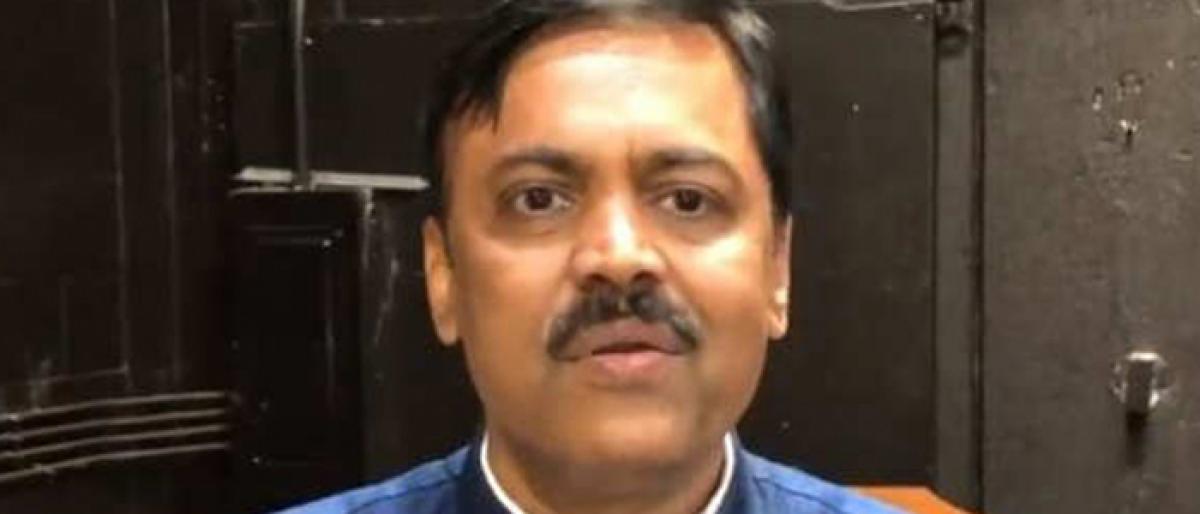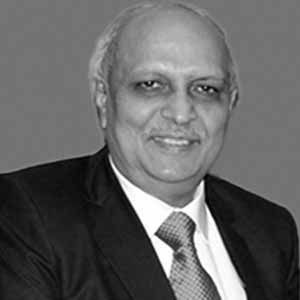Live
- No Telugu Ganga water supply in some wards today
- Press Release - Understanding Men’s Mental Health Challenges FINAL
- International Men’s Day: Make ‘Him’ Feel Truly Special
- Chandrasekhar takes charge as Srisailam temple EO
- Border-Gavaskar Trophy 2024-25: Devdutt Padikkal, Sai Sudarshan back-ups for Indian team for Test matches
- Nayanthara Opens Up About Her Turbulent Past in Netflix Documentary Beyond The Fairytale
- World Toilet Day 2024: Theme, History, and The Importance of Sanitation
- Exercise for over 2 hr every week may boost heart health
- A transformative Leadership: Village Named After a Dynamic IAS Office
- Kanakadasa’s legacy of music, philosophy remembered
Just In

Mr GVL Narasimha Rao, Member of Parliament stirred up a hornets nest when he remarked that in Andhra Pradesh about 50,000 crores are credited to the Personal DepositPD accounts and its a scam much bigger than of 2G scam
Mr. GVL Narasimha Rao, Member of Parliament stirred up a hornets’ nest when he remarked that in Andhra Pradesh about 50,000 crores are credited to the Personal Deposit(PD) accounts and it’s a scam much bigger than of 2G scam.
This led to a series of challenges and counter challenges from both the sides and in the dust and din that was generated in the process the focus on what exactly is a PD account and its relevance was lost. PD account is not something newly invented but is in operation for a long time in the financial system and is covered by the provisions in the financial code. It is in operation in other states as well . The only issue of relevance with reference to Andhra Pradesh as well as Telangana (some of the legacies they carry together) is the huge number of PD accounts and substantial amounts that are transacted through these accounts.
After the budget and appropriation bill are passed from first of April with the starting of the financial year the executive is authorised to spend money from the Consolidated fund of India. To facilitate this expenditure in Andhra Pradesh state as well as in Telangana we have two directorates Director, Treasury And Accounts and Director of Works Accounts.
All the works bills like Irrigation, Roads and Buildings are handled in the Director of Works Accounts and the other normal expenditure like salaries, maintenance etc are handled in the Director of Treasuries and Accounts. When the bills are presented by the heads of the department in these directorates pre- audit of the bills is done before the payment is authorised.
In some exceptional circumstances, more specifically, when specific scheme funds are involved financial code provides for transfer of amount in lump sum to the Personal Deposit accounts operated by the heads of the department or the managing director of state government undertakings.
Though they are termed as Personal Deposits in fact there is nothing personal about them and are operated by government officers in their official capacity and there are set procedures for withdrawal of amount from these accounts. But they escape rigorous scrutiny of the bills as is the case when they are presented to the directorates.
Since the procedure of withdrawal of funds through the two directorates is cumbersome there is a preference for handling money through the PD accounts by the heads of the department. We also see unusual activity of crediting funds to the PD account in the March month since the amounts not spent before March as part of the normal budgetary process will lapse but if they are withdrawn and credited to the PD account, departments can operate on these funds in ensuring financial year as well.
As far as the budget is concerned expenditure is incurred the day money is drawn debiting it to the Consolidated Fund and crediting it to the PD account.
2016-17 CAG report made some observations about the maintenance of the PD accounts in Andhra Pradesh. They made a reference to about 51,000 crore is being withdrawn through the PD account and the unusual number of 58,000 PD account in Andhra Pradesh compared to a few hundred accounts in other states and the fact that most of these accounts are nonoperative and no transactions have been done. They also made certain specific observation with reference to the PD accounts of certain organisations.
Though PD accounts are in operation for a long time and substantial amounts are being routed through the PD accounts the amount of money routed through the PD account in 2016-17 looks unusual. For a budget of 1,32,000 crores of Andhra Pradesh about Rs 65,000 crore goes towards committed expenditure of salaries, pensions and interest payments et cetera and the remaining amount of Rs 67,000 crore is spent on capital formation and other general services and maintenance expenditure of the state government .
If we balance out the opening and closing balances, the actual expenditure out of PD account incurred during the year is Rs 47,000 crore which is working out to 70% of the non-committed expenditure incurred by the AP government. Since all this would escape pre-scrutiny of bills, if they were to be paid in the normal process, this definitely needs an explanation from the state government why such unusually huge amounts were routed through the PD account during this financial year.
The second important feature about the PD account in Andhra Pradesh is the unusually large number compared to other states. This is because we have covered the panchayats and agricultural marketing committees with PD accounts. This is nothing but an effort to control and watch whether they are spending their money as per the norms prescribed in the grants. Ulterior motive is all the amounts in the PD account count for the ways and means the state government has with RBI. It would be more appropriate to credit these amounts to the general accounts of panchayats closing down the PD accounts and give them necessary freedom to spend and in any case if they violate the norms they are liable for action.
That itself would reduce the number of PD accounts to less than 10,000. Even then, this number is quite high compared to many other states and needs to be brought down further . Finance dept is aware of this and there is a constant effort to reduce the PD accounts but in practice does not happen for a variety of reasons. It is worthwhile at least now to focus and get the PD accounts to as minimum a number as possible and make crediting to PD account an exception.
But this would also need a proactive sensitive finance department . When pre- scrutiny becomes an opportunity for unnecessary querying then departments will again look for an alternative which would facilitate expenditure without harassment.

© 2024 Hyderabad Media House Limited/The Hans India. All rights reserved. Powered by hocalwire.com







